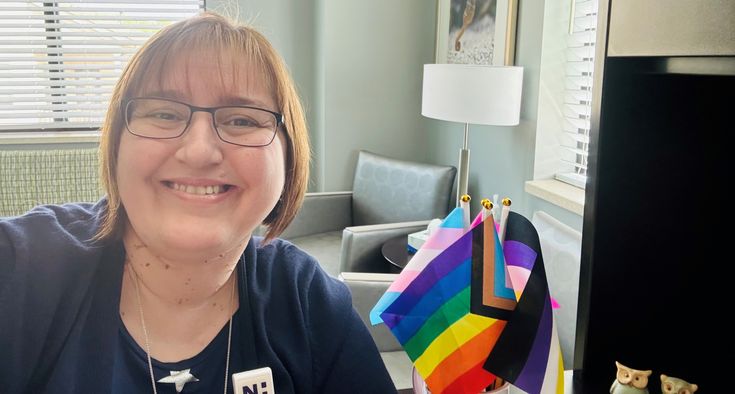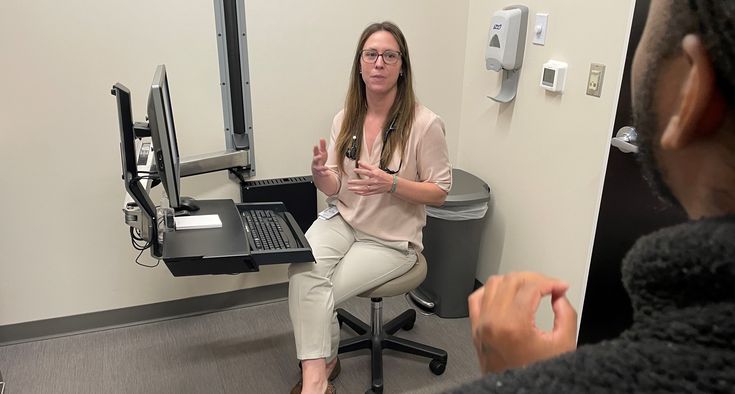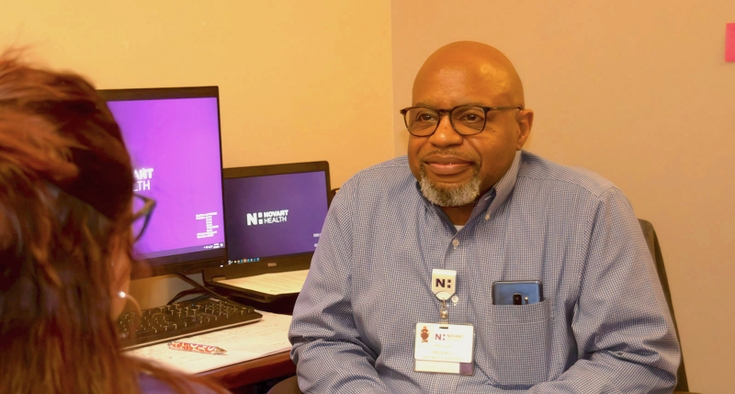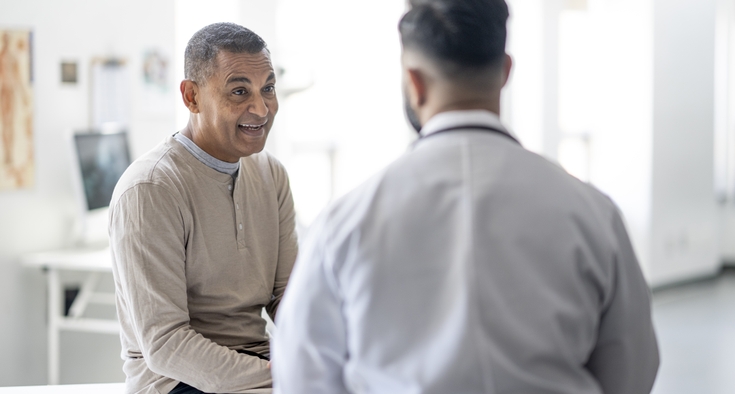Just over half of Aspa Ralli-Koukoutsis’ patients are part of the LGBTQ+ community, and many had a negative, even traumatic, experience in therapy before they found her.
She also had patients who’ve seen therapists who believe being part of the community is a problem to be fixed, rather than a piece of the patient’s identity. “And that’s not one or two cases,” she said. “In 24 years, I must’ve had over 200 patients who’ve told me some variation of that story.”
“Each time I hear about it, I cringe. But when my patients tell me these things, I say, ‘I’m so sorry that you had this experience. You and Iwill do great work here to navigate your concerns.’”
Ralli-Koukoutsis, with Novant Health Psychiatry - Marvin Creek in Waxhaw, North Carolina, felt called to become an ally and an affirming provider for the LGBTQ+ population because she saw how marginalized and judged they were in her native country, Greece.
“I’m an immigrant, and the LGBTQ+ community in Greece is very oppressed,” she said. “When I came here and started my career, I specialized in that area because I felt there was a huge need and I can make a difference. I’m happy to say that things have improved in the 24 years since I started.”
Need to find a supportive mental health therapist? Your primary care physician can help.
As all medical providers have become more informed about the unique health care needs of people within the community, one of those improvements has been a greater coordination between mental health services and physical care.
“Often, their primary care physician – someone like Dr. Cramer McCullen of Novant Health Midtown Family Medicine in Charlotte – has assured them they’ll have a different experience with me,” Ralli-Koukoutsis said. “I’m honored when a new client says they were anxious about coming to see me but their anxiety went away as soon as they met me.”
Beyond sexual identity
Clients from the LGBTQ+ community may initially see Ralli-Koukoutsis to help them – or their families – cope with their sexuality or gender identity. But that serves only as the catalyst in addressing other mental health and substance use concerns.Ralli-Koukoutsis is not just a therapist; she’s also a licensed clinical addiction specialist.
Best doctors. Amazing nurses. Remarkable care.
Read more here about our compassionate mental health care services.
Many may not recognize they have an addiction when they first meet with her. “They don't see how alcohol or any other substance use affects them physically, emotionally and mentally,” she said. “We definitely address that right away. It’s a triage situation, and we address the most severe symptoms first.”
Domestic violence is also a common concern among many of her gay and lesbian patients. “It is a big concern in the community,” she said. “Being part of the community so often comes with feelings of isolation, shame and fear of violence. So, when people experience violence with their partner, patients often stay silent because they don’t know where they can find safety. I am that safe space for my patients – and together, we make sure they have the tools and resources they need to avoid further harm.”
Goal-oriented therapy
When Ralli-Koukoutsis begins working with a new patient – no matter their gender or sexual orientation – she asks about their goals. “I ask: What do you want to get out of therapy?” she said. “It may be managing anxiety or depression, addressing family dynamics or some other issue.”
Some patients are basically living two lives – the life they want to live and the life they believe they are forced to live because of their family, work or religious expectations. About 20% of Ralli-Koukoutsis’ patients feel they need to conceal who they really are from their immediate environment.
“I work with some patients on how they can start this conversation with family,” she said. “But there are those who say, ‘I come from a culture that doesn’t tolerate homosexuality, so, I can’t ever tell them.’”
While Ralli-Koukoutsis would never encourage someone to come out to their family if they’re certain their family won’t accept them, she helps patients cope with their decision not to share with their family.
When patients want to come out to their families but struggle with how, she has occasionally facilitated those conversations. “Some people seem to accept the news better if it comes from a medical professional,” she said.
The oldest patient she’s counseled on coming out was 58. “It’s never too late to live the life you want and deserve,” she said. “What keeps me going as a therapist is seeing people who’ve been reluctant to be their authentic selves begin to live their truth. It’s never an easy journey, but I love to see my patients find their power.”
An ally who understands
Ralli-Koukoutsis understands the difficulties LGBTQ+ clients often face. “They have some additional challenges that (straight) people don’t ever have to consider,” she said.
One of the first questions LGBTQ+ patients ask Ralli-Koukoutsis is: “Are you one of us – or are you an ally?”
She’s the latter – and she doesn’t pretend to know everything about the LGBTQ+ community. “There are times I will ask my patients to tell me their point of view since I’m not part of the community,” she said.
She does know what it means to be bullied, though.
“When I first started in the field, I used to receive death threats because I had chosen to treat the LGBTQ+ community,” she said. “We’ve come a long way, but we still have a lot of work to do.”
For Ralli-Koukoutsis, that work includes reassuring patients and those seeking help that safe, identity-affirming care is truly available. “Don’t give up,” she advises anyone who’s had uncomfortable or unsatisfying experiences in therapy. “And do your research. Ask people you trust – your friends, family physician – for recommendations. Look for a ‘gender-affirming’ and truly ‘nonjudgmental’ therapist.
“Then, ask about their background and training. Ask them what percentage of their patient population is part of the community. It's not an unfair question to ask. You deserve somebody who will prioritize getting to know your needs, concerns and fully understand the realities the community faces.”










